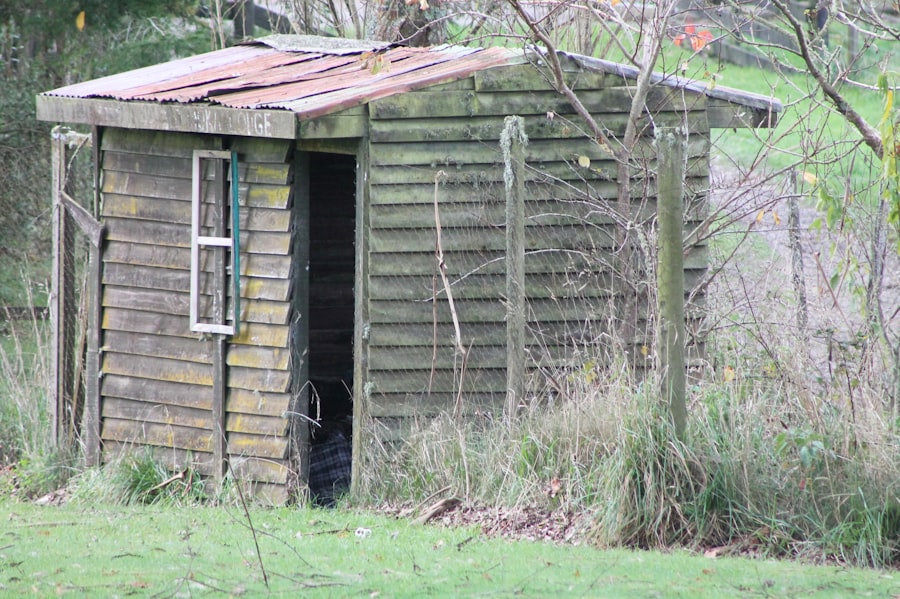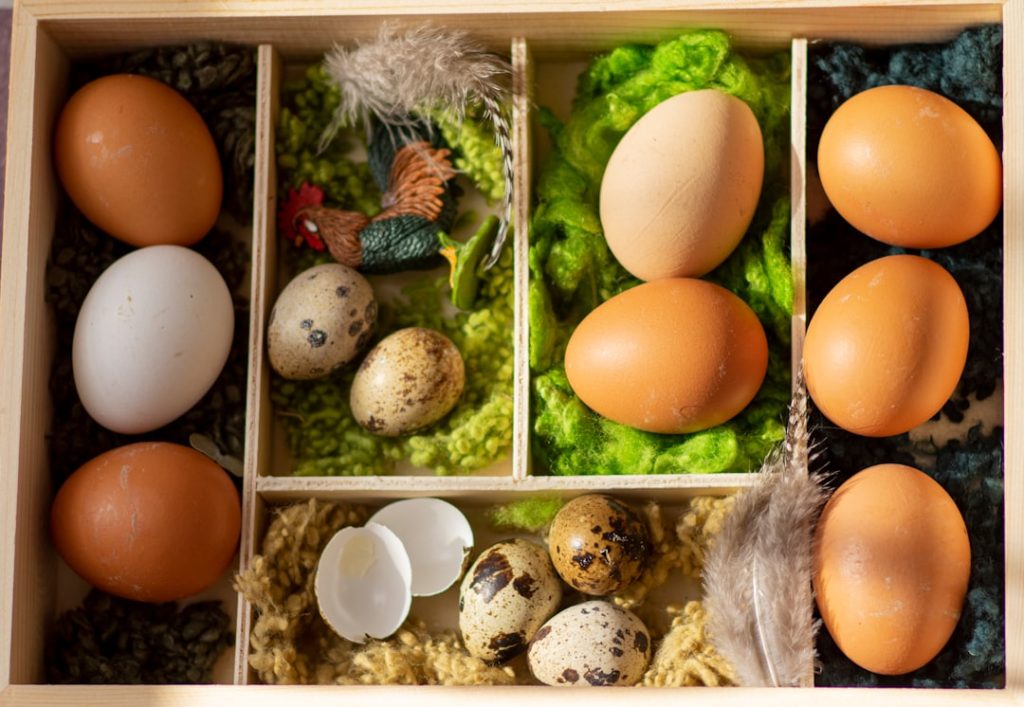When selecting chickens for a backyard coop, several factors should be considered. Climate is a crucial consideration, as some breeds are better adapted to cold weather, while others thrive in warmer conditions. The intended purpose of the chickens is also important, whether for egg production, meat, or dual-purpose use.
Each type has distinct characteristics and requirements. For egg production, breeds like Rhode Island Red or Leghorn are popular choices. For meat production, Cornish Cross or Freedom Ranger breeds may be more suitable.
Temperament is another important factor, especially for families with children or other pets. Some breeds are known for being docile and friendly, while others may be more skittish or aggressive. The size of the backyard and available space for chickens should also be taken into account.
Some breeds are better suited for free-ranging, while others can thrive in smaller spaces. For limited space, smaller breeds like bantams may be appropriate, as they require less room and are good foragers. Larger properties may accommodate bigger breeds such as Orpingtons or Australorps, which are well-suited for free-ranging.
Ultimately, the ideal breed for a backyard coop depends on specific needs and preferences. Thorough research of different breeds and consideration of all relevant factors is essential before making a decision.
Table of Contents
- 1 Building a Coop
- 2 Feeding and Watering
- 3 Health and Wellness
- 4 Egg Collection and Care
- 5 Handling and Socializing
- 6 Legal Considerations
- 7 FAQs
- 7.1 What are the benefits of keeping backyard chickens?
- 7.2 What do backyard chickens need to thrive?
- 7.3 What are some common challenges of keeping backyard chickens?
- 7.4 What are some important considerations before getting backyard chickens?
- 7.5 What are some popular chicken breeds for backyard poultry keeping?
Key Takeaways
- Consider the climate, space, and purpose of raising chickens when choosing the right breed for your coop
- When building a coop, prioritize safety, ventilation, and predator-proofing
- Provide a balanced diet and clean water for your chickens to ensure their health and productivity
- Regularly monitor and maintain the health of your chickens through vaccinations and proper hygiene
- Collect eggs daily and store them properly to ensure freshness, and handle and socialize with your chickens regularly to build trust and reduce stress
- Be aware of local regulations and zoning laws regarding raising chickens, and obtain any necessary permits or licenses
Building a Coop
Size and Space Considerations
Each chicken will need at least 2-3 square feet of space inside the coop, as well as access to an outdoor run. Additionally, make sure to include roosting bars for your chickens to perch on at night, as well as nesting boxes for egg-laying.
Ventilation and Predator Protection
It’s also important to provide adequate ventilation to prevent moisture buildup and ensure good air circulation. This can be achieved through windows, vents, or a combination of both. Make sure that your coop is secure and predator-proof, with sturdy walls and a strong roof to keep out potential threats like raccoons, foxes, and birds of prey. Consider adding hardware cloth or wire mesh to windows and vents to prevent entry by smaller predators like rats and snakes.
Location and Materials
Choose a spot that is well-drained and provides some natural shade, as well as easy access for cleaning and maintenance. When it comes to materials, there are several options to consider. Many backyard chicken keepers opt for wooden coops, which provide good insulation and a natural look. However, metal or plastic coops can also be effective, especially in wet climates where rot and mold are a concern. Ultimately, the design and construction of your coop will depend on your specific needs and preferences, so take the time to plan carefully and create a space that is both functional and aesthetically pleasing for your flock.
Feeding and Watering

Proper nutrition is essential for keeping your backyard chickens healthy and productive. When it comes to feeding your flock, there are several options to consider. Many chicken keepers opt for commercial chicken feed, which is formulated to provide all of the essential nutrients that chickens need to thrive.
There are different types of chicken feed available, including starter feed for young chicks, grower feed for adolescent chickens, layer feed for hens producing eggs, and broiler feed for meat birds. Additionally, there are organic and non-GMO options for those who prefer to feed their chickens a more natural diet. In addition to commercial feed, it’s important to provide your chickens with access to fresh water at all times.
Make sure that your waterers are clean and free of debris, and consider using heated waterers in the winter to prevent freezing. In addition to feed and water, many chicken keepers also supplement their flock’s diet with kitchen scraps, fruits, vegetables, and even insects. However, it’s important to avoid feeding your chickens anything that is toxic or harmful to their health, such as avocado pits or moldy food.
Ultimately, providing a balanced diet with access to clean water is essential for keeping your backyard chickens healthy and happy.
Health and Wellness
Keeping your backyard chickens healthy is essential for their overall well-being and productivity. There are several key aspects of chicken health and wellness to keep in mind as a chicken keeper. First and foremost, it’s important to monitor your flock regularly for signs of illness or injury.
Common signs of illness in chickens include lethargy, decreased appetite, abnormal droppings, respiratory issues, and changes in behavior. If you notice any of these signs, it’s important to take action quickly by isolating sick birds and seeking veterinary care if necessary. In addition to monitoring for illness, it’s important to practice good biosecurity measures to prevent the spread of disease within your flock.
This includes quarantining new birds before introducing them to your existing flock, as well as practicing good hygiene by regularly cleaning and disinfecting your coop and equipment. Additionally, consider vaccinating your chickens against common diseases like Marek’s disease and Newcastle disease to provide an extra layer of protection. Another important aspect of chicken health and wellness is parasite control.
Common parasites that can affect chickens include mites, lice, fleas, and worms. Regularly inspect your flock for signs of parasites, such as feather loss or irritation, and take action promptly if an infestation is detected. There are several options for parasite control, including topical treatments, dust baths, and natural remedies like diatomaceous earth.
Finally, providing a clean and comfortable living environment is essential for maintaining the health and wellness of your flock. This includes regular cleaning of the coop and nesting boxes, as well as providing adequate ventilation and access to fresh water at all times. By taking these steps to promote good health and wellness in your backyard chickens, you can help ensure that they live long and happy lives.
Egg Collection and Care
One of the most rewarding aspects of keeping backyard chickens is collecting fresh eggs from your flock. When it comes to egg collection and care, there are several key factors to keep in mind. First and foremost, make sure that you provide clean and comfortable nesting boxes for your hens to lay their eggs.
This can be achieved by lining nesting boxes with clean bedding material such as straw or wood shavings, which will help keep eggs clean and prevent breakage. When collecting eggs from your nesting boxes, it’s important to handle them with care to prevent damage. Use both hands to gently lift eggs from the nest, being careful not to drop or jostle them.
It’s also a good idea to collect eggs frequently throughout the day to prevent them from becoming soiled or damaged by other hens. Once you’ve collected your eggs, it’s important to store them properly to maintain freshness and quality. Eggs should be stored in a cool place away from direct sunlight, ideally at temperatures between 45-55 degrees Fahrenheit.
Avoid washing eggs before storage, as this can remove the protective bloom that helps keep bacteria out of the eggshell pores. Instead, simply wipe off any visible dirt or debris with a dry cloth before refrigerating. Finally, when it comes to egg care, it’s important to regularly inspect your eggs for signs of spoilage or deterioration.
Discard any eggs that have cracked shells or unusual odors, as these can be signs of contamination or spoilage. By following these guidelines for egg collection and care, you can ensure that you enjoy fresh and delicious eggs from your backyard flock.

Socializing with your chickens is crucial in building trust and creating a positive bond between you and your flock. Spend time sitting with them in their coop or run, offering treats by hand, and speaking softly to them. Over time, they will become more comfortable with your presence and may even seek out interaction with you.
Introducing New Birds to the Flock
When introducing new birds to an existing flock, it’s essential to do it gradually. Allow new birds to interact with existing members through a wire barrier before being fully integrated into the flock. This helps prevent aggression or bullying from established members while giving new birds time to acclimate.
Creating a Positive Environment
By taking the time to handle and socialize with your backyard chickens regularly, you can help create a positive environment that promotes trust and well-being within your flock. This leads to a healthy and happy relationship between you and your chickens.
Legal Considerations
Before starting a backyard chicken flock, it’s important to be aware of any legal considerations that may apply in your area. Zoning laws and local ordinances can vary widely when it comes to keeping chickens within city limits or residential areas. Some areas may have restrictions on the number of chickens allowed per property or may require permits for keeping poultry.
Additionally, some areas may have specific regulations regarding coop construction and placement, such as minimum distance requirements from property lines or neighboring homes. It’s important to research local laws and regulations before starting a backyard chicken flock to ensure compliance with any legal requirements. In some cases, homeowners’ associations may also have rules regarding keeping chickens on residential properties.
Be sure to review any applicable HOA guidelines before starting a backyard flock. By familiarizing yourself with any legal considerations that may apply in your area before starting a backyard chicken flock, you can help ensure a smooth and compliant experience as a chicken keeper. In conclusion, keeping backyard chickens can be a rewarding experience that provides fresh eggs, natural pest control, and entertainment for the whole family.
By carefully considering factors such as breed selection, coop construction, nutrition, health care practices, egg collection methods, handling techniques, socialization efforts, and legal considerations before starting a backyard flock, you can create a positive environment that promotes the health and well-being of your feathered friends while complying with any applicable laws or regulations in your area.
If you’re interested in keeping backyard chickens, you may also want to consider learning about quail breeding. Poultry Wizard has a helpful article on whether quails sit on their eggs, which can provide valuable insights into the process of hatching and raising poultry. Check it out here.
FAQs
What are the benefits of keeping backyard chickens?
Keeping backyard chickens can provide a sustainable source of fresh eggs, natural pest control for your garden, and a source of organic fertilizer for your plants.
What do backyard chickens need to thrive?
Backyard chickens need a secure coop for shelter, access to fresh water, a balanced diet of chicken feed, access to a suitable outdoor space for foraging, and protection from predators.
What are some common challenges of keeping backyard chickens?
Common challenges of keeping backyard chickens include predator attacks, disease prevention, maintaining coop cleanliness, and managing noise and odor.
What are some important considerations before getting backyard chickens?
Before getting backyard chickens, it’s important to check local regulations and zoning laws, consider the time and effort required for care and maintenance, and ensure that you have the necessary space and resources to properly care for the chickens.
What are some popular chicken breeds for backyard poultry keeping?
Popular chicken breeds for backyard poultry keeping include Rhode Island Reds, Plymouth Rocks, Australorps, and Orpingtons, which are known for their egg-laying abilities and docile temperaments.
Meet Walter, the feathered-friend fanatic of Florida! Nestled in the sunshine state, Walter struts through life with his feathered companions, clucking his way to happiness. With a coop that’s fancier than a five-star hotel, he’s the Don Juan of the chicken world. When he’s not teaching his hens to do the cha-cha, you’ll find him in a heated debate with his prized rooster, Sir Clucks-a-Lot. Walter’s poultry passion is no yolk; he’s the sunny-side-up guy you never knew you needed in your flock of friends!







